When I drive around small towns and country roads, there’s a distinctive retail form I see a lot: the country corner store/deli/coffee shop. These stores might have some or all of the following: a residential or formerly residential second floor, an attached gas station (or maybe you’d say a gas station with a country store attached), a deli/sandwich counter, a fried chicken/pizza franchisee operating inside, a diner-style drip coffee machine, a small basic grocery section, a few random tools and household goods, and live bait.
The customers don’t seem to mostly be the affluent commuters who live in these more remote, less developed communities. At least in my relatively limited experience, they’re usually either older locals or retirees, or immigrant and/or blue-collar workers, say, stopping in between jobs or on break. They also serve as community spots. Often there’s a little bit of seating inside and/or outside, and you’ll see someone with a laptop, or a couple of older folks chatting over coffee.
What you’re really seeing is something like a European street scene where people sit and shoot the breeze and…productively and fruitfully do nothing? These are places that are just there, open to anyone who wants to walk in or sit down, and they will probably outlive a lot of trendy chains and retail concepts. They’re third places before anyone had a name for that.
There’s a thing that happens on social media where some New Yorker will say from time to time that only New York City has bodegas. That’s silly, because most cities have that kind of store. But even small towns and the country have them. These are basically bodegas adapted for more rural areas. Of course, if you grew up in a place with country stores, they’re hardly notable at all.
But what’s notable is that modern suburbia doesn’t really have them. It has chain convenience stores, which aren’t quite the same. As outer areas suburbanize, these little independent country stores often go up for sale or close. I think that’s another little data point that tells you towns and cities are the same sort of thing, and suburbia is something different.
I want to show you two of the nicer and more interesting country stores I’ve seen out on the road.
First, this one in Ringoes, New Jersey, just past Flemington. It has a sub and sandwich menu, and a deli slicer where a guy behind the counter slices deli meats to order.
If you look closely, you see so many overlapping things here, which indicate more diversity in the customer base than you might expect. Everything from live bait and tools to Italian subs and biscotti to down-home breakfast and specials. It’s interesting to me that someone is actually doing all the buying for this store, specifically; it isn’t a chain that just receives what corporate determines.
Someone parked an e-bike outside and was sitting at one of these old Formica tables. An e-bike trip is probably coming from somewhere beyond the immediate handful of houses that surround the store. Biking as transportation is not just for dense cities.
Think about this question: do you live somewhere where you could take a short walk or hop on a bike and go somewhere to spend a couple bucks and sit in a quasi-public space? If you do or don’t, what kind of place do you live in?
And what’s across the parking lot from the very small strip plaza the store is in? What looks like an abandoned barn!
The second one is in Revere, Pennsylvania, which I drove through on an aimless road trip. It’s on a stretch of country road, and beyond a park and a small strip plaza there isn’t much here.
Look at the building: a 2 or 1.5 story main structure, a two-story side structure with two residential units and/or accessory commercial units in the front, and one or two little additional rooms on the left.
From Google Maps—unfortunately, I didn’t photograph this full view—you can see there’s even another building with a couple of businesses in it, and apparently a tiny post office with restricted hours.
This is essentially the embryonic beginnings of a town that never really became a town. It’s a mixed-use, multi-story set of structures. The very first iteration of what became Main Street in many places and no longer stands at all in many others. As far as I can tell from Historic Aerials, the main structure that’s now the store was already there in the 1950s, and possibly part of the addition too.
Over the decades the additional bits and buildings were added. The flexibility of these spaces, their slight messiness, and the difficulty of determining their former or current uses is the point. The whole point, in a way.
Inside the country store:
DVD rentals!
Typically, these places barely have an internet presence, and have very few online reviews. Their Google review count will also usually greatly exceed their Yelp review count. Many have no customer photos posted. These stores almost exist outside of the world of sizing up and rating and photographing your food. They don’t bring in business through reviews. In some ways the internet reverse-engineers what older, tighter communities simply did.
And do you really need the reviews? It’s just coffee and a sandwich. Of course the coffee is a little thin or burnt. Of course the bread isn’t a perfect artisan loaf. What the heck do you expect?
I think there’s nothing wrong with once in awhile convincing yourself—maybe, on some level, permitting yourself—to settle for a little less, in a low-stakes situation. And if you can just unselfconsciously walk in and down some decent cheap coffee and sit on a worn wooden porch and look out at a tiny little country town? Maybe that’s even better.
Related Reading:
Not-Pennsylvania Amish Country
Thank you for reading! Please consider upgrading to a paid subscription to help support this newsletter. You’ll get a weekly subscribers-only piece, plus full access to the archive: over 1,000 pieces and growing. And you’ll help ensure more like this!




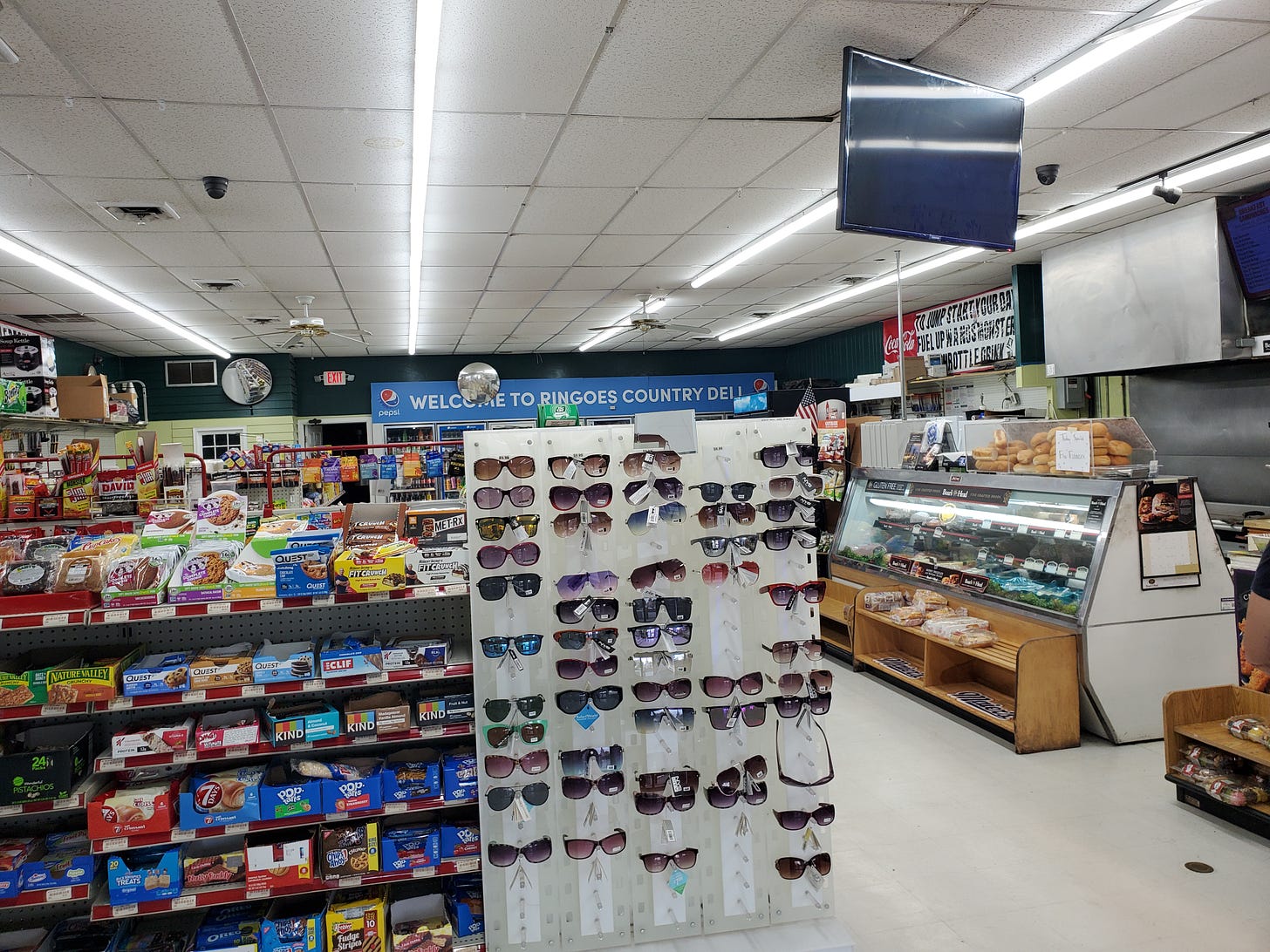
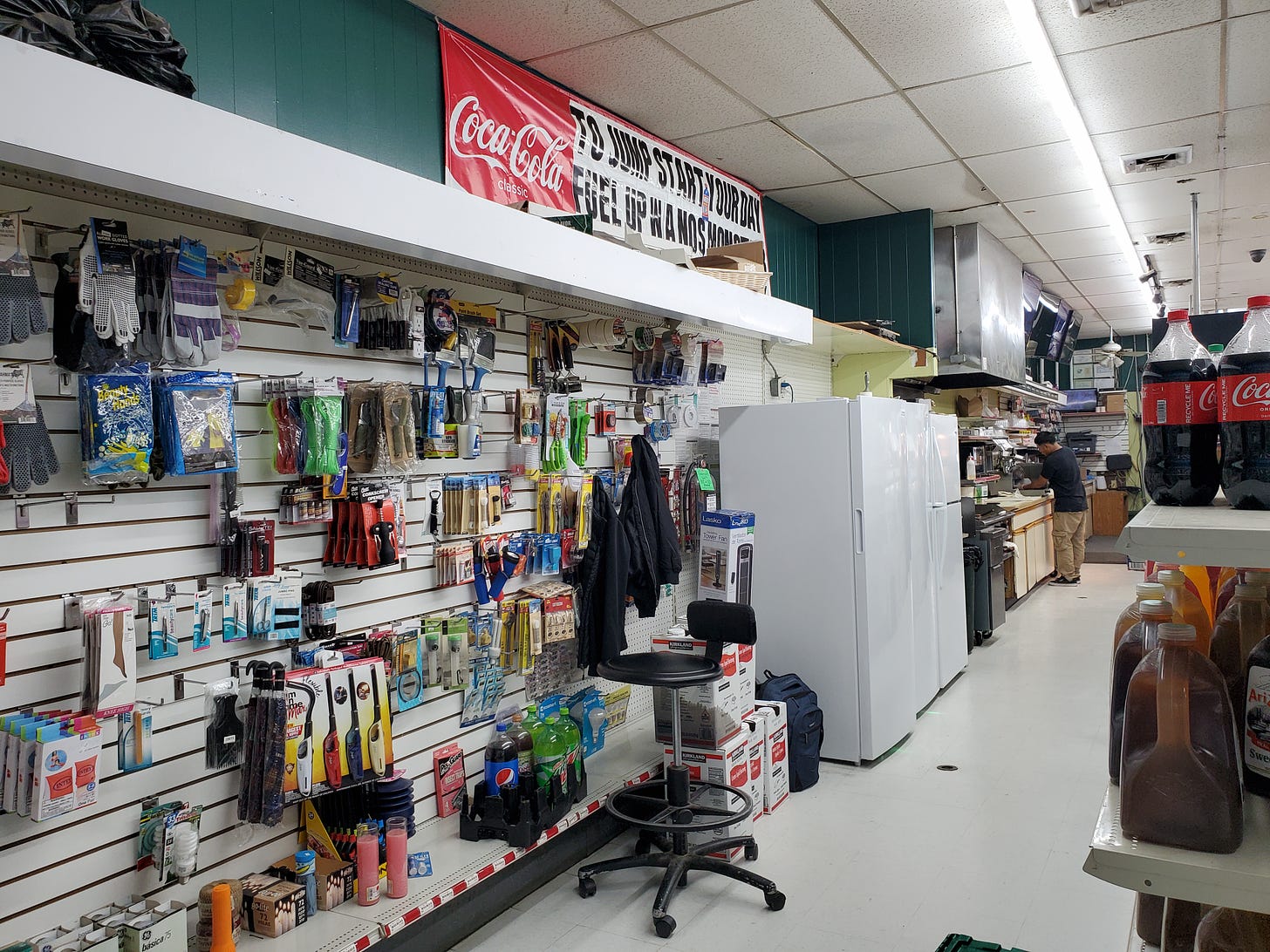
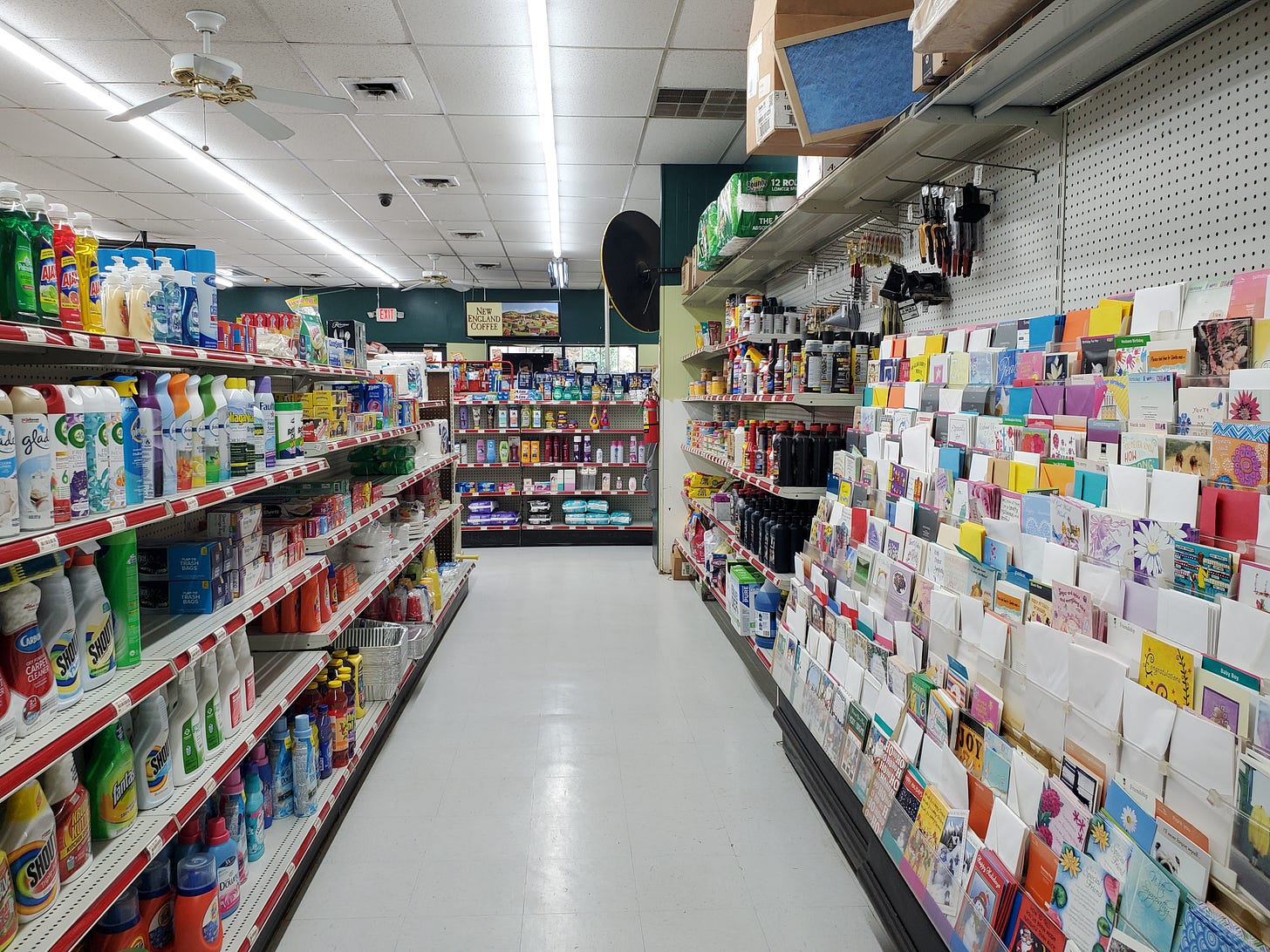
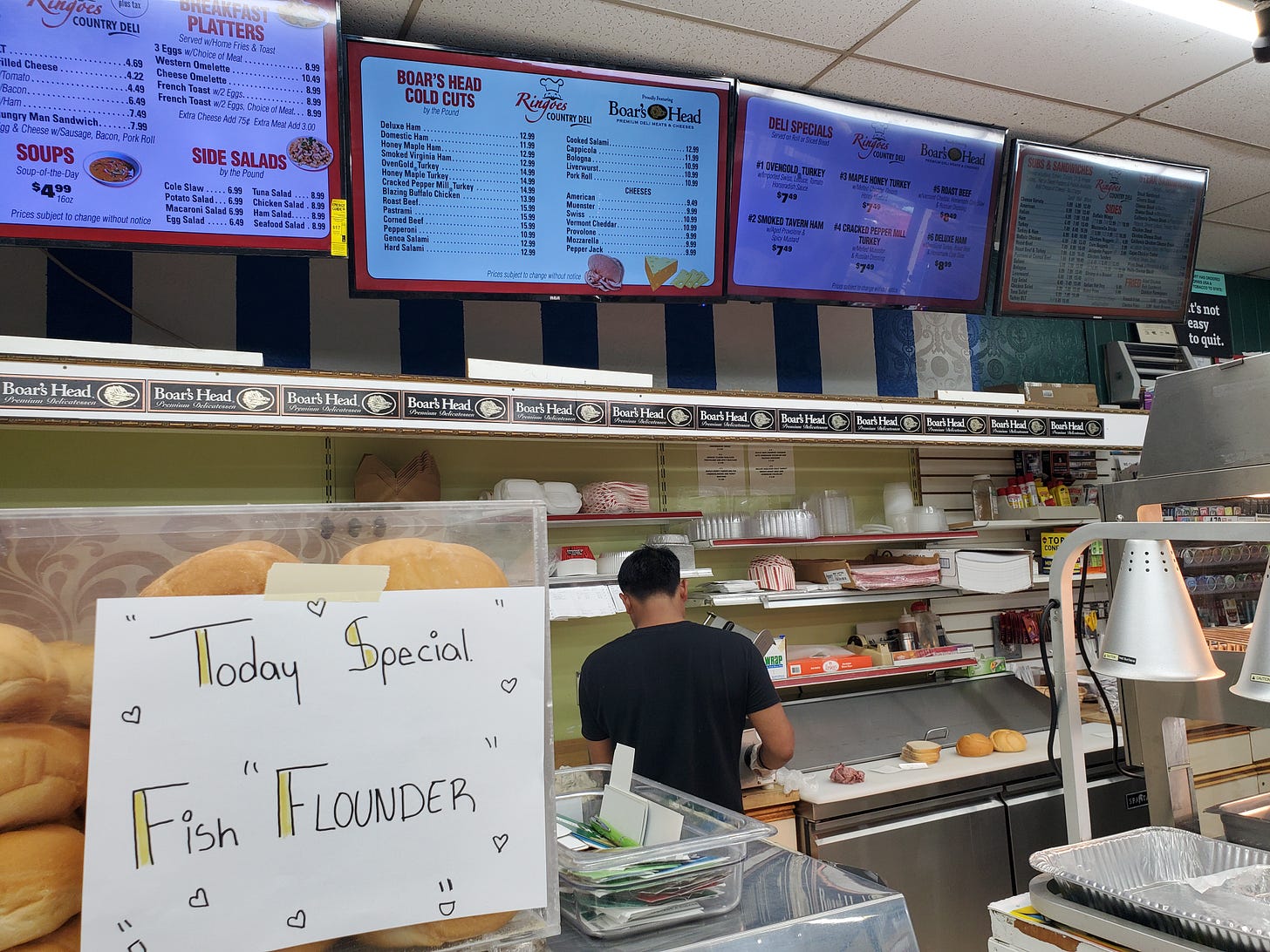
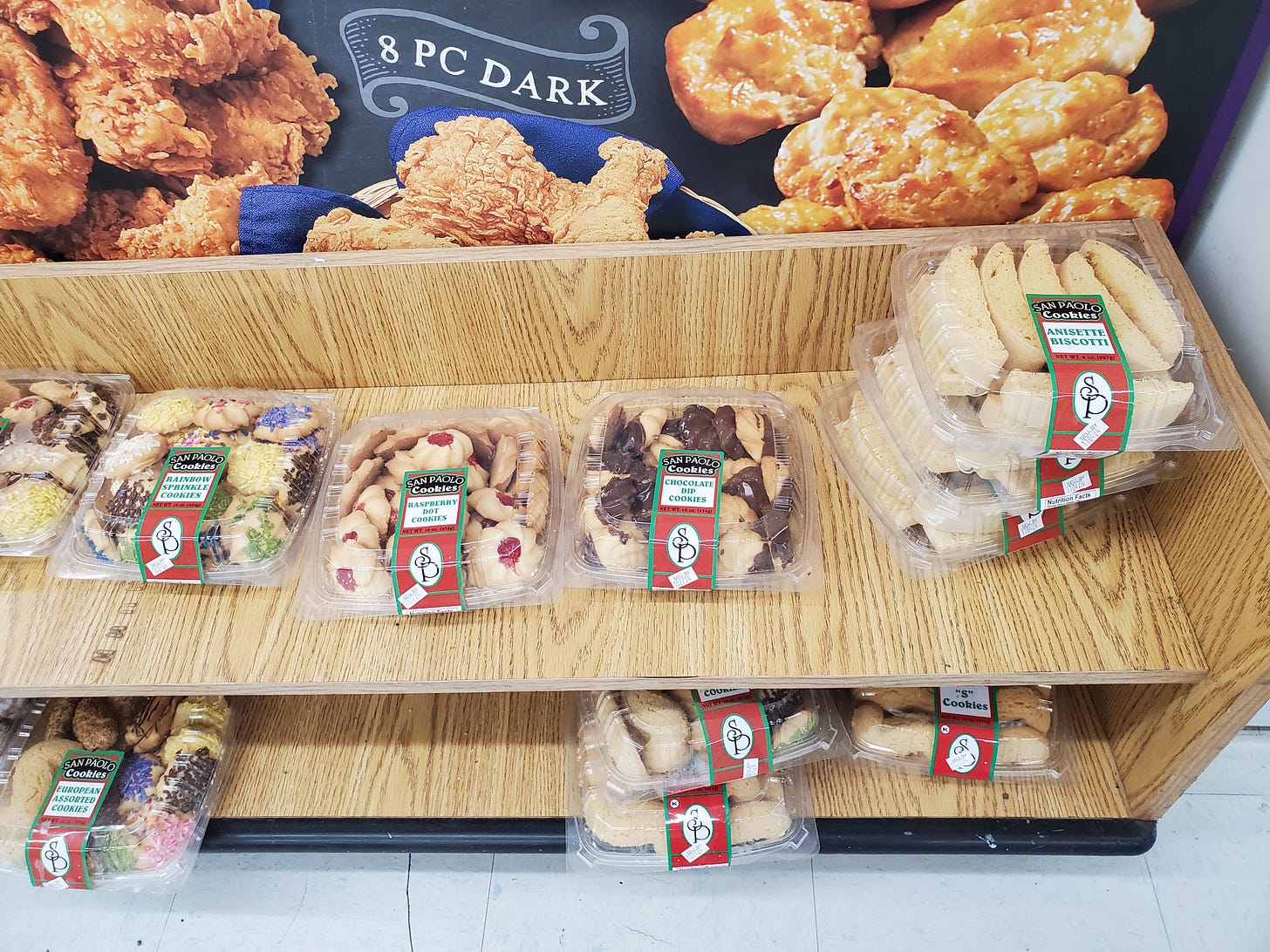
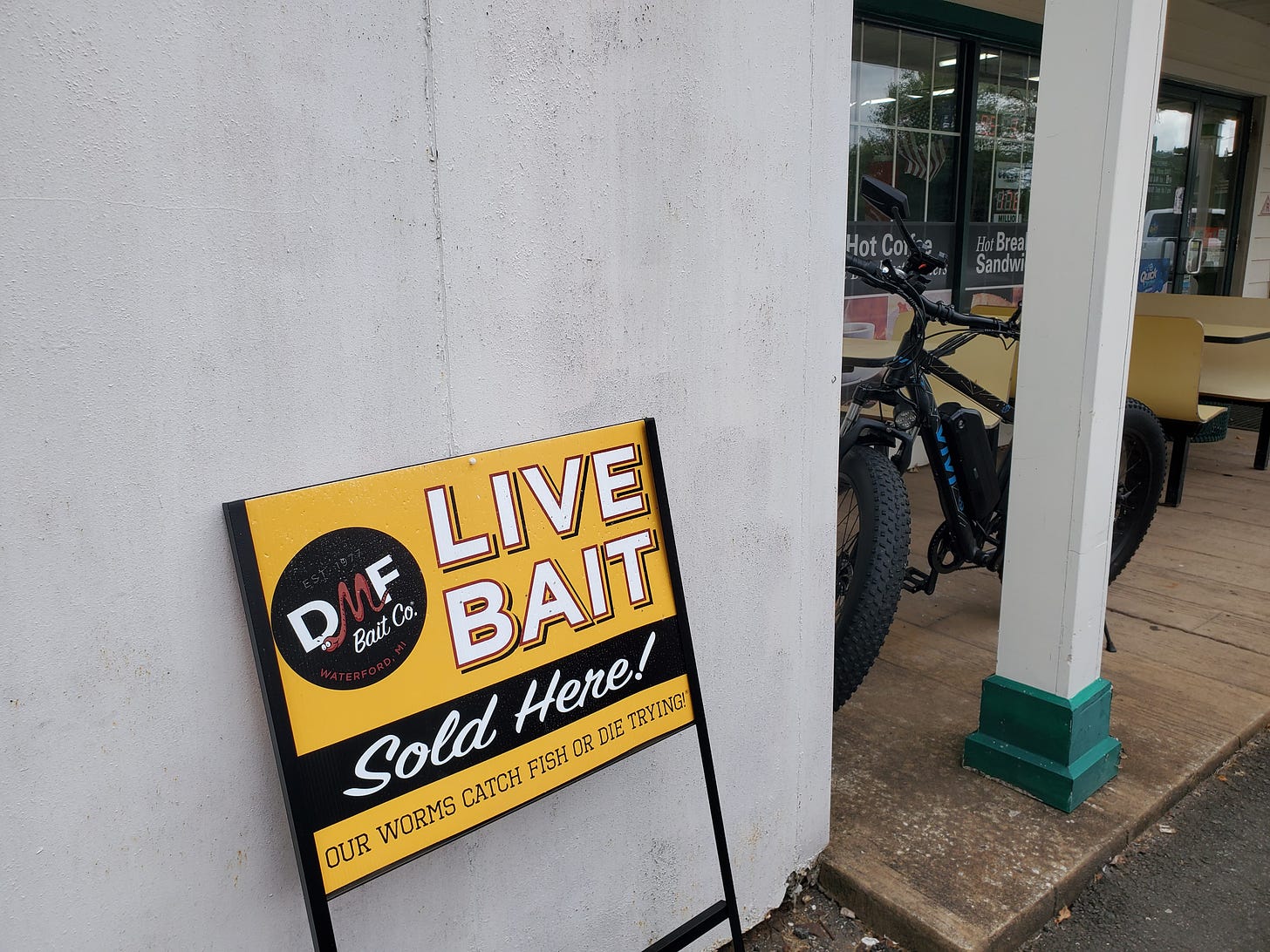
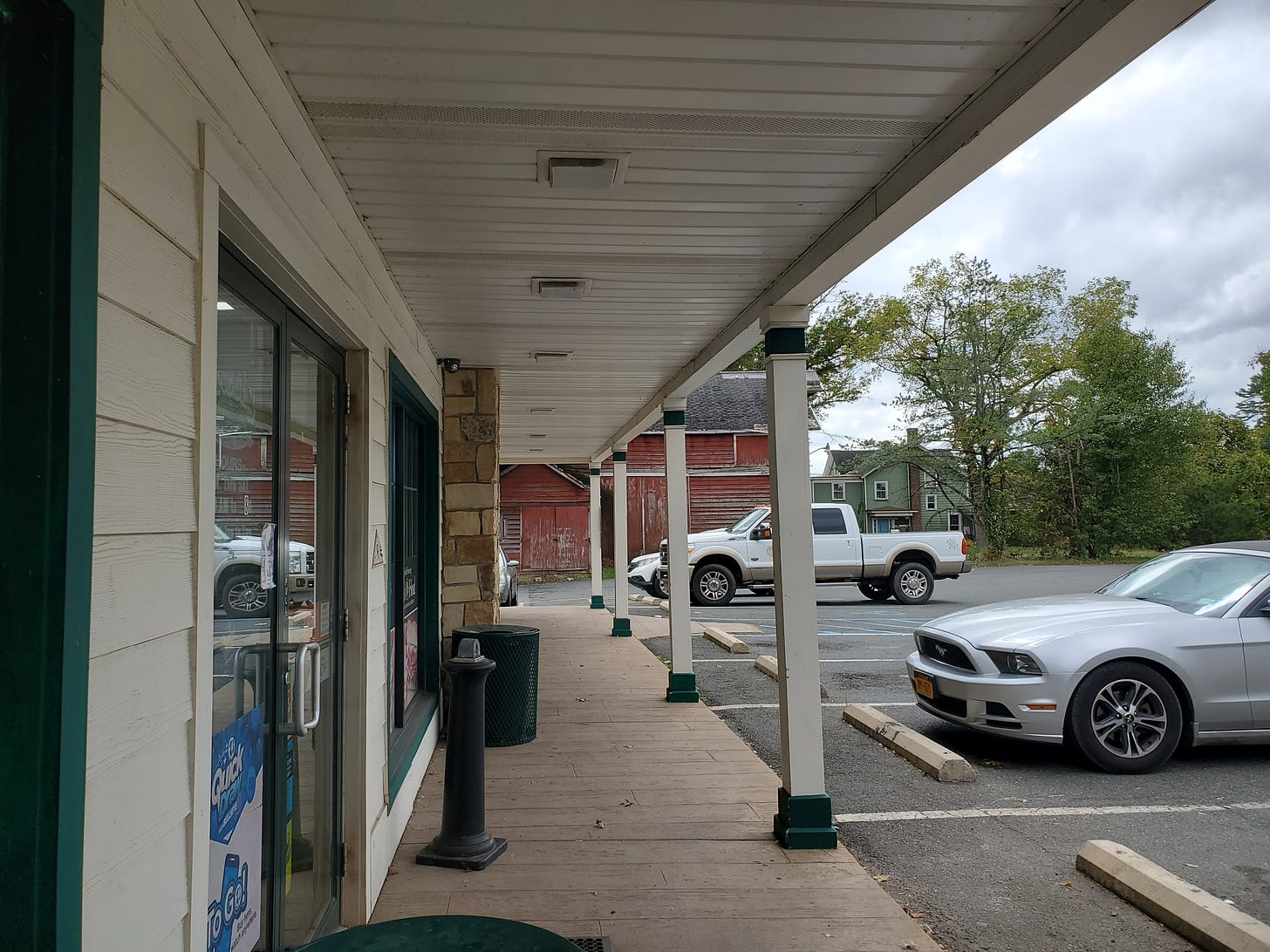
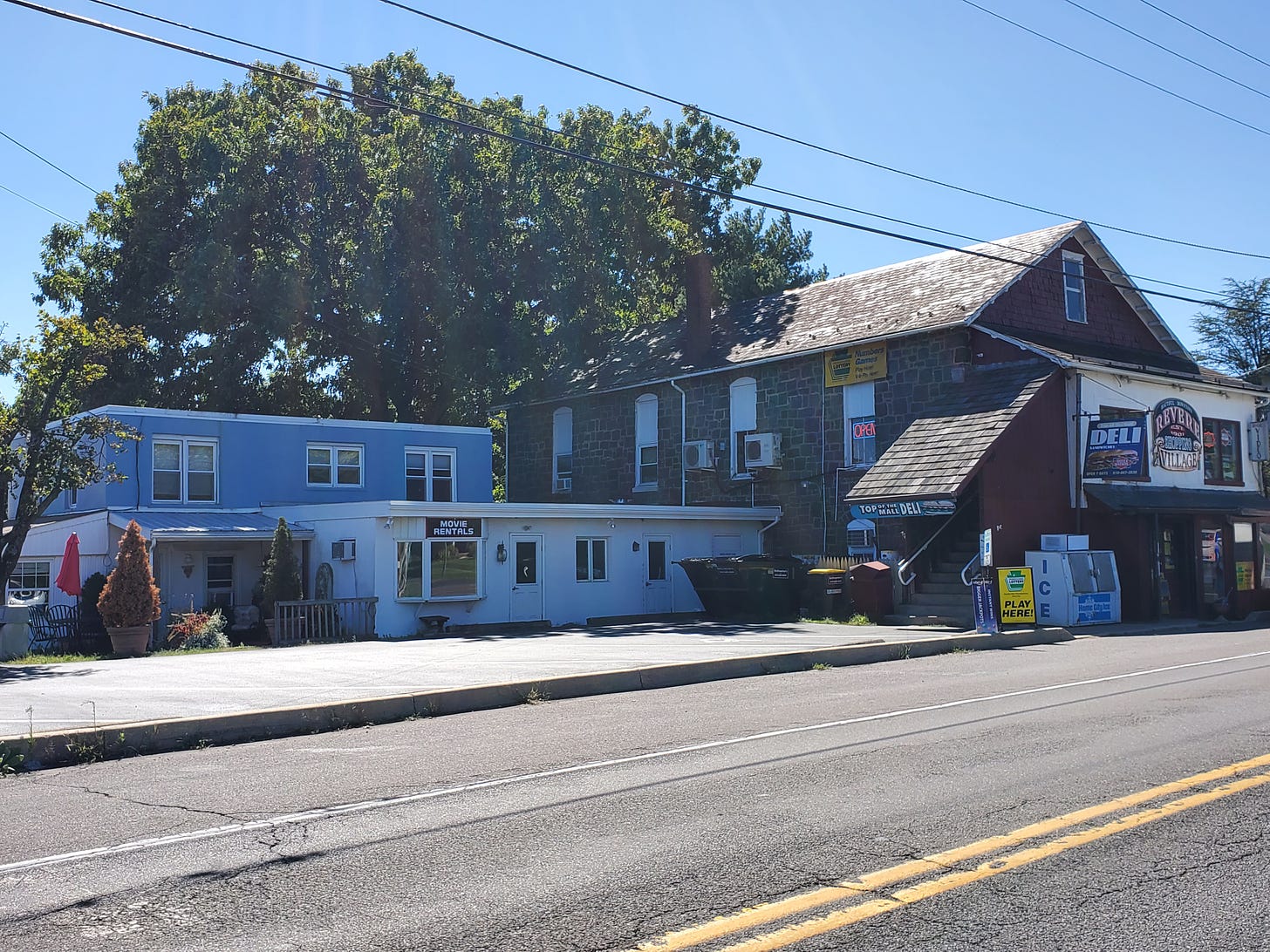
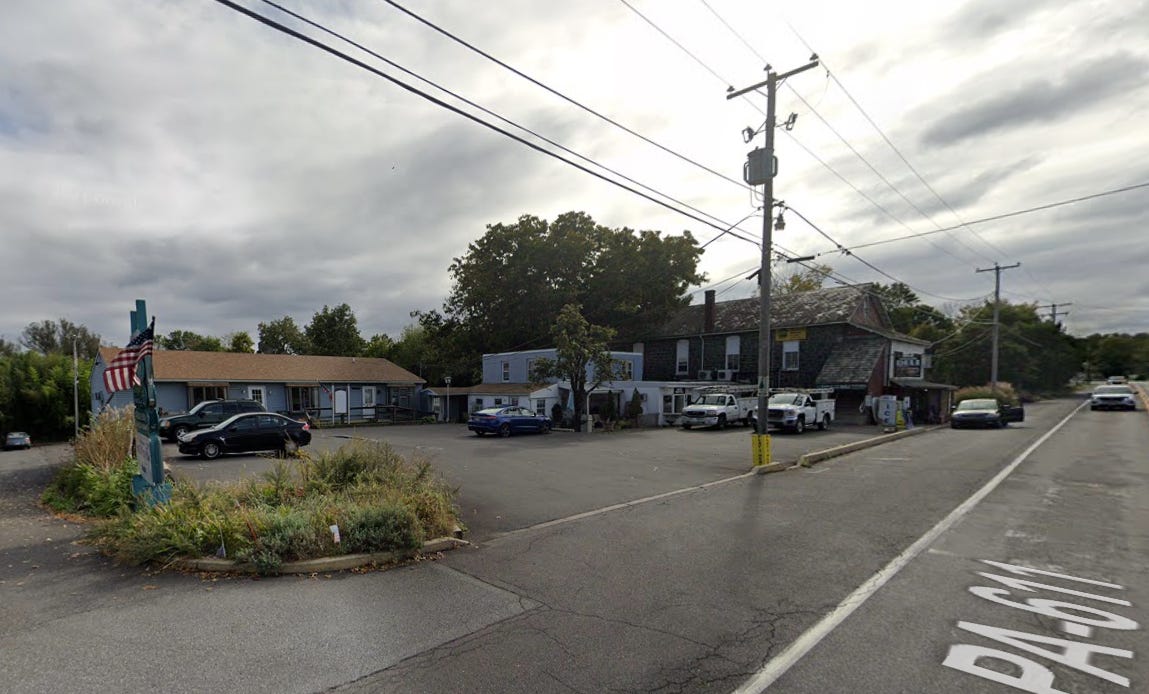
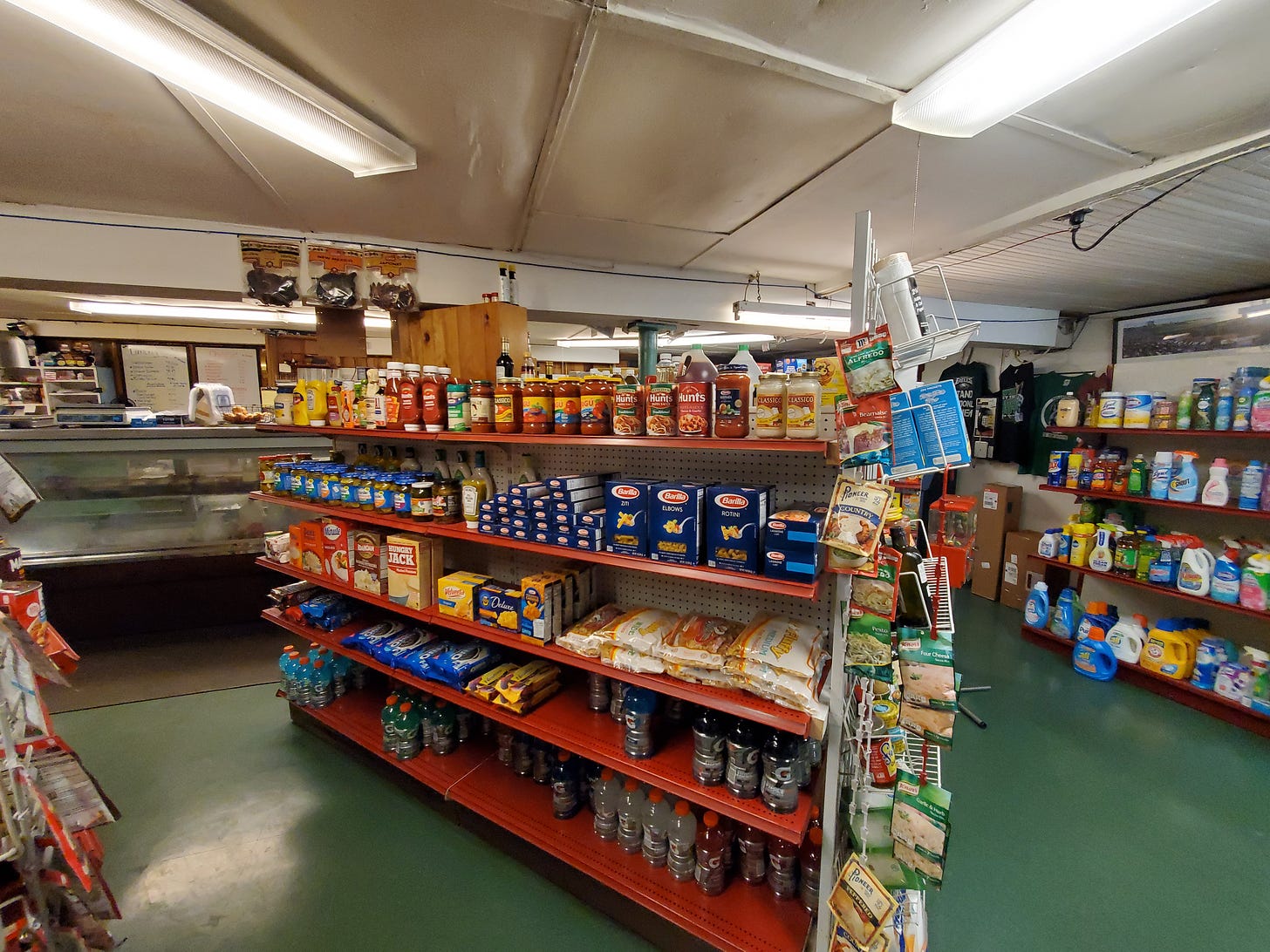
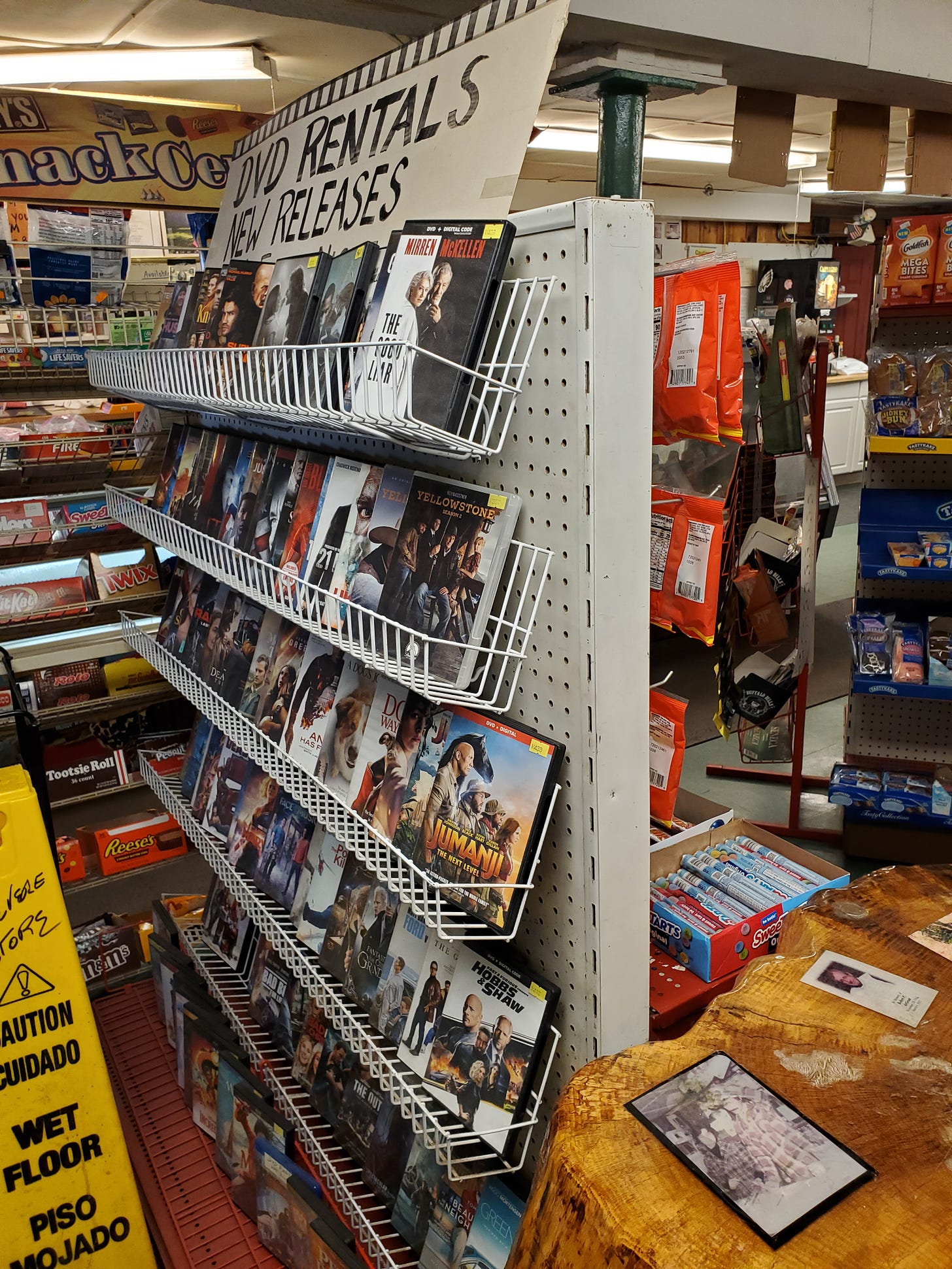
Can we relax? Can we accept anything less than a peak experience? Yes! One, two, three, RELAX!!!!
BTW, Keurig machines make awful tea. You can do better with a microwave in a convenience store.
This describes the vibrant heart of every small Vermont village. I loved reading it!